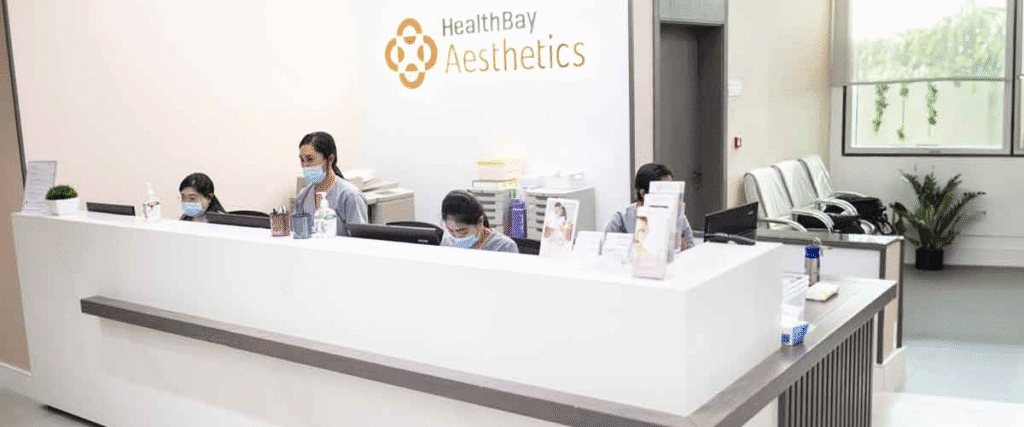In a landmark advancement for women’s health in the UAE, HealthBay has introduced the nation’s first AI-integrated mammography system to screen for breast cancer. This state-of-the-art system is designed to detect early signs of breast cancer with greater precision and speed, offering new hope for early diagnosis and improved outcomes.
The Urgency of Early Detection
Breast cancer remains one of the leading health challenges worldwide, and early detection is critical. The earlier abnormalities are found, the more treatment options are available, and the better the chances of survival and recovery. Traditional mammography, while invaluable, has limitations — including human error, difficulty distinguishing benign vs malignant lesions, and a reliance on radiologist expertise under time pressures.
Adding artificial intelligence (AI) to the screening process aims to mitigate those limitations. With AI aiding in pattern recognition, subtle indicators of concern may be flagged sooner, even before visible signs emerge. For patients, that means fewer false negatives, fewer needless recalls, and faster follow-up care.

What Makes This AI-Integrated System Different
Intelligent Detection Algorithms
This AI-integrated mammography system uses deep learning models trained on vast image datasets to recognize patterns associated with malignancy, even very early tumors. It evaluates texture, shape, density, and microcalcifications that might be missed by the human eye. Its assistance does not replace the radiologist — rather, it supports them with a second opinion, increasing confidence and reducing oversight.
Seamless Workflow Integration
One of the key strengths is how smoothly this system works alongside existing workflows. It can be integrated into HealthBay’s imaging centers without major overhauls to operations. When an image is captured, the AI processes it almost instantaneously, flags suspicious areas, and generates a risk score or visual overlay. Radiologists review the flagged regions, use their judgment, and make informed decisions faster.

Enhanced Sensitivity and Specificity
Balancing sensitivity (detecting true positives) and specificity (minimizing false positives) is always challenging in cancer screening. This system is tuned to prioritize high sensitivity — not missing cancers — while also applying thresholds to avoid unnecessary alarms. By refining these settings for the UAE population, HealthBay aims to reduce recalls and improve patient experience.
Data Security, Compliance, and Oversight
Given the sensitivity of medical imaging and patient data, the system is built with privacy, encryption, and compliance to medical regulations in mind. All AI recommendations are fully auditable and transparent. Radiologists can review and override AI annotations, ensuring human oversight remains central.
Benefits for Patients and Clinicians

For Patients: Faster, More Reassuring Results
Women undergoing mammograms often endure long waits and anxiety over ambiguous results. With AI support, turnaround times shrink. In many cases, images flagged as clearly negative will require minimal further review. For those flagged as potentially suspicious, additional diagnostic steps can begin sooner. This speed can ease stress and lead to faster interventions.
The system’s improved accuracy also means fewer unnecessary recalls — fewer women getting called back for further testing when everything is actually fine. That spares emotional distress, additional costs, and extra radiation exposure.
For Clinicians: Better Support, Reduced Burden
Radiologists, already overloaded, can benefit substantially. The AI acts as a “second pair of eyes,” highlighting areas of interest and reducing the monotony of scanning thousands of images. This frees clinicians to focus on complex cases, consultative care, and patient interaction. It also reduces diagnostic fatigue and human error risk.
For Health Systems: Cost Efficiency and Quality
By reducing false positives and unnecessary follow-ups, the system can potentially save costs associated with additional imaging, biopsies, and administrative burdens. Earlier detection often leads to less aggressive treatments, lower hospitalization time, and better resource utilization. Ultimately, it contributes to a higher standard of care throughout the health network.
Implementation at HealthBay: A Transformational Step
Screening Programs and Access
HealthBay intends to deploy this AI-integrated mammography across its hospitals and imaging centers within the UAE. Initially, priority may be given to high-risk populations — women over 40, those with a family history, or patients referred by physicians. Over time the goal is to make AI-supported mammograms a standard for all eligible women.
Educational outreach will accompany the deployment — informing patients and physicians about the benefits, limitations, and what AI assistance really means (an aid, not a replacement). HealthBay is also planning training programs for radiologists and technicians to use and interpret AI suggestions responsibly.
Quality Assurance and Continuous Learning
AI systems perform best when they keep learning. HealthBay will monitor diagnostic outcomes, feedback loops, and error rates to refine the AI algorithms. The system will be audited regularly to ensure it remains calibrated for local demographics, breast density variations common in Middle Eastern women, and evolving cancer presentation patterns.
Safety nets are also in place: Any AI consensus must still pass through human radiologist review, and ambiguous cases will follow standard protocols. This hybrid model ensures accountability and patient safety.
Supporting Infrastructure and Partnerships
To roll out such technology, HealthBay has partnered with medical imaging vendors, AI software developers, and regulatory bodies. Infrastructure enhancements include high-performance computing, secure data storage, and network connectivity to allow tele-review, remote consultation, and system updates. In addition, HealthBay may connect to regional health networks to anonymize and pool data for improved algorithm performance over time.
Challenges and Considerations
Algorithm Bias and Population Fit
AI models trained on data from one population may not perform as well on another due to differences in breast density, genetic background, or imaging equipment. Ensuring the algorithms are validated for the UAE population is essential to avoid misdiagnoses. Regular checks for bias and fairness must continue.
False Positives and Overdiagnosis Risk
Even the best screening systems must wrestle with the risk of false positives (calling benign findings suspicious) and overdiagnosis (detecting abnormalities that wouldn’t cause harm). Striking the right balance is delicate. Patients must be counseled about the tradeoffs, and clinicians must interpret AI flags with care.
Cost, Maintenance, and Technology Adoption
Deploying, maintaining, and upgrading AI systems is expensive. Smaller clinics or remote areas may struggle to adopt them. Ensuring equitable access across the UAE — not just in metropolitan centers — will be a challenge. Continuous training for staff and adaptation to evolving technology also demand commitment.
Patient Trust and Acceptance
Some patients may worry about “machines deciding their health” or fear errors. Transparent communication is key: the AI only assists, and a qualified radiologist oversees all decisions. Trust can be built through patient education, testimonials, and consistent demonstration of improved outcomes.

Real-World Impact: What It Could Mean for UAE Women
Imagine a woman in Abu Dhabi nearing her 40s — she schedules a mammogram at a HealthBay imaging center. The radiographer positions her, images are taken, and within minutes, the AI system has already flagged areas of interest, assigned a risk estimate, and prepared visual overlays.
The radiologist reviews the images, notes the AI flags, and correlates with clinical history. If all is clear, the patient may be discharged with quick reassurance. If something is suspicious, she is swiftly called for ultrasound or biopsy — perhaps on the same or next day, speeding onward care.
Over years, early detection rises, fewer advanced cancers at diagnosis, treatments become less invasive, and survival rates improve. The psychological burden of uncertainty reduces. The healthcare system becomes more efficient, and overall trust in cancer screening grows.
Stories That Humanize the Technology
Consider Aisha, a UAE resident who lost her aunt to late-stage breast cancer. When she heard HealthBay would offer AI-supported mammograms, she scheduled her first screening earlier than she would have. The AI flagged a tiny lesion; the radiologist recommended further testing. A biopsy found a Stage I tumor, and she underwent conservative treatment with a successful recovery.
In another case, Leila, a who is very health-conscious but anxious about mammograms, was pleasantly surprised at how quickly the review came back “low risk.” Her follow-up anxiety was spared thanks to efficient screening and rapid reporting.
These real stories (though anonymized) remind us that behind every mammogram, every image, is a person — a life, a hope, a future. Technology’s greatest role is to protect and uplift those lives.
The Future of AI in Breast Imaging and Beyond
This AI-integrated mammography launch is just a beginning. In the future, the same imaging platform could incorporate:
- Multimodal imaging, combining AI interpretation across mammograms, ultrasound, MRI, and even molecular imaging.
- Risk prediction models, integrating genetics, lifestyle data, and imaging to personalize screening intervals.
- Tele-radiology extensions, enabling remote experts to review flagged images for underserved regions.
- Continuous learning systems, where the AI improves over time based on new confirmed diagnoses.
- Integration with patient portals, giving women access to annotated images and understandable reports, fostering health literacy and engagement.
As these capabilities mature, breast cancer screening may become more personalized, precise, and humane.
Final Thoughts: A New Era in Breast Cancer Care
HealthBay’s launch of the UAE’s first AI-integrated mammography system heralds a new era in cancer screening. It exemplifies how technology, when thoughtfully applied, can amplify human expertise rather than replace it. For women in the UAE, it promises faster, safer, more reliable screenings. For radiologists, a powerful collaborator. For the healthcare system, smarter use of resources. And most importantly, for patients, earlier diagnoses and brighter futures.
Breast cancer is not just a statistic — it touches families, dreams, and lives. Innovations like this one bring not only technological progress, but hope and real change. As the system is adopted and refined, the UAE could become a model for how AI helps transform cancer care around the world.
Do follow UAE Stories on Instagram
Read Next – All UAE University Students to Receive Free Google Gemini Subscription















